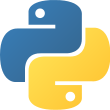Get to grips with pandas - a fast, versatile, and high-performance Python library for data discovery, data manipulation, data preparation, and handling data for analytical tasks
Key Features
- Perform efficient data analysis and manipulation tasks using pandas 1.x
- Apply pandas to different real-world domains with the help of step-by-step examples
- Become well-versed in using pandas as an effective data exploration tool
Book Description
Data analysis has become an essential skill in a variety of domains where knowing how to work with data and extract insights can generate significant value. Hands-On Data Analysis with Pandas will show you how to analyze your data, get started with machine learning, and work effectively with the Python libraries often used for data science, such as pandas, NumPy, matplotlib, seaborn, and scikit-learn.
Using real-world datasets, you will learn how to use the pandas library to perform data wrangling to reshape, clean, and aggregate your data. Then, you will learn how to conduct exploratory data analysis by calculating summary statistics and visualizing the data to find patterns. In the concluding chapters, you will explore some applications of anomaly detection, regression, clustering, and classification using scikit-learn to make predictions based on past data.
This updated edition will equip you with the skills you need to use pandas 1.x to efficiently perform various data manipulation tasks, reliably reproduce analyses, and visualize your data for effective decision making—valuable knowledge that can be applied across multiple domains.
What you will learn
- Understand how data analysts and scientists gather and analyze data
- Perform data analysis and data wrangling using Python
- Combine, group, and aggregate data from multiple sources
- Create data visualizations with pandas, matplotlib, and seaborn
- Apply machine learning algorithms to identify patterns and make predictions
- Use Python data science libraries to analyze real-world datasets
- Solve common data representation and analysis problems using pandas
- Build Python scripts, modules, and packages for reusable analysis code
Who this book is for
This book is for data science beginners, data analysts, and Python developers who want to explore each stage of data analysis and scientific computing using a wide range of datasets. You’ll also find this book useful if you are a data scientist looking to implement pandas in your machine learning workflow. Working knowledge of the Python programming language will assist with understanding the key concepts covered in this book; however, a Python crash-course tutorial is provided in the code bundle for anyone who needs a refresher.
Table of Contents
- Introduction to Data Analysis
- Working with Pandas DataFrames
- Data Wrangling with Pandas
- Aggregating Pandas DataFrames
- Visualizing Data with Pandas and Matplotlib
- Plotting with Seaborn and Customization Techniques
- Financial Analysis - Bitcoin and the Stock Market
- Rule-Based Anomaly Detection
- Getting Started with Machine Learning in Python
- Making Better Predictions - Optimizing Models
- Machine Learning Anomaly Detection
- The Road Ahead
 Language
Language
 Reading time
Reading time
 What you will learn
What you will learn
 Author
Author
 Published
Published
 Packages you will be introduced to
Packages you will be introduced to
